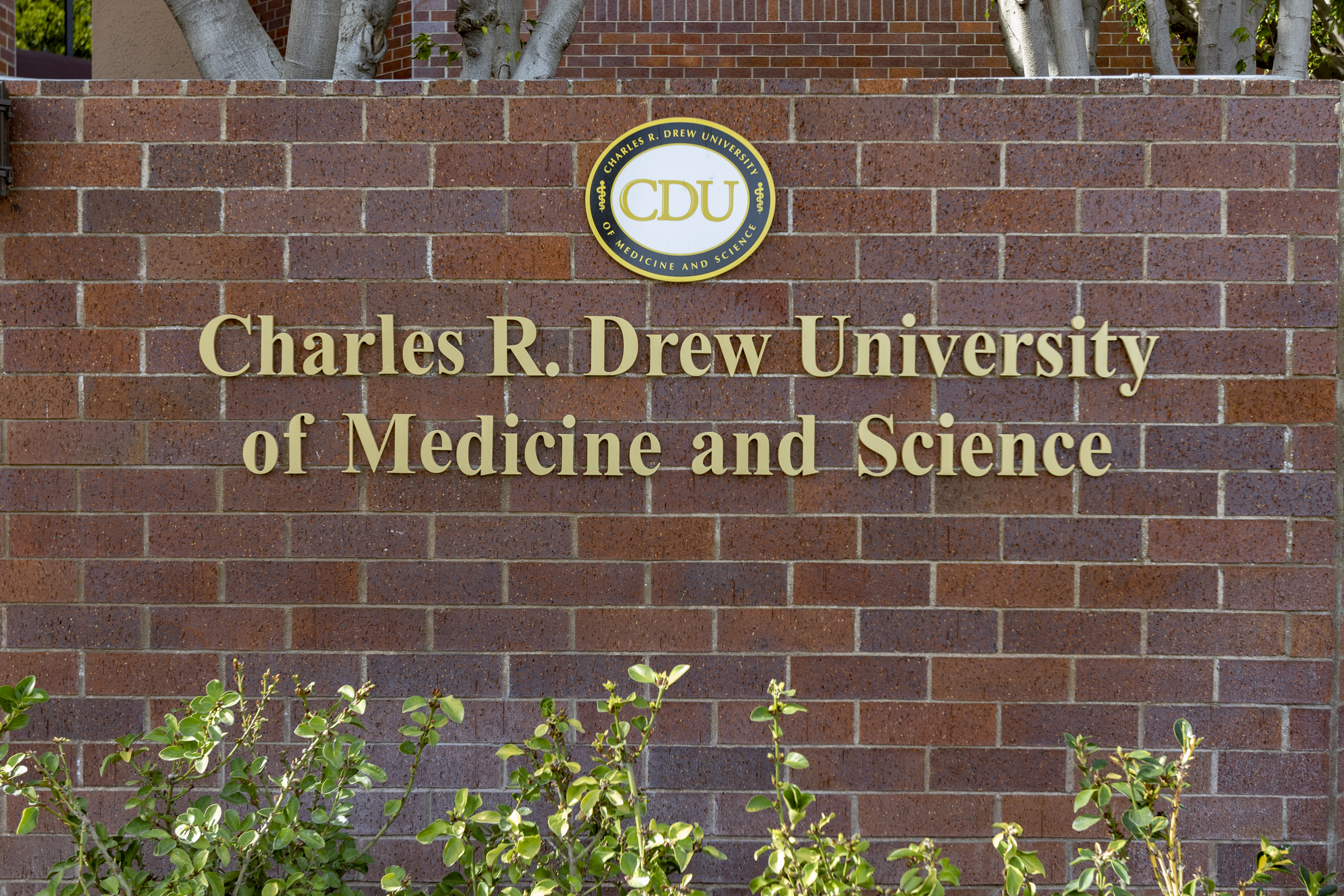California Doesn’t Have an HBCU, But It Does Have an HBGI. Here’s What That Means.
 Credit: Photo Courtesy of CDU
Credit: Photo Courtesy of CDU- Charles R. Drew University of Medicine and Science is California’s only historically Black graduate institution (HBGI).
- The university, located in South Los Angeles, was founded in 1966.
- CDU offers undergraduate degrees, graduate degrees, and certificate programs across the health and medical fields.
None of the 107 historically Black colleges and universities (HBCUs) in the U.S. are located in California, but the state is home to one historically Black graduate institution (HBGI): Charles R. Drew University of Medicine and Science.
Founded in 1966, a year after the Watts Rebellion, Charles R. Drew University of Medicine and Science (CDU) is a private, nonprofit university with three schools: the College of Medicine, the College of Science and Health, and the Mervyn M. Dymally School of Nursing.
Read on to learn more about California’s only HBGI.
What Is a Historically Black Graduate Institution?
CDU is only one of four historically Black medical colleges and is designated as a minority-serving institution by the U.S. Office for Civil Rights. The Department of Education also recognizes the school as a historically Black graduate institution.
HBGIs are graduate institutions determined to be “making a substantial contribution to the legal, medical, dental, veterinary, or other graduate education opportunities in mathematics, engineering, or the physical or natural sciences for Black Americans,” according to the Department of Education.
Professional and graduate institutions classified as HBGIs include:
- Morehouse School of Medicine
- Meharry Medical School
- Charles R. Drew Postgraduate Medical School
- Clark-Atlanta University
- University of the District of Columbia David A. Clarke School of Law
Many other HBCUs have graduate programs recognized as HBGIs, including Morgan State University, North Carolina A&T State University, and Bowie State University.
What’s California’s Only HBGI Like?
CDU offers several degrees from associate of science in radiologic technology to doctor of nursing practice and a doctor of medicine through a partnership with the David Geffen School of Medicine at the University of California, Los Angeles (UCLA).
The school is named for Dr. Charles R. Drew, an African American physician known for his work on blood banking during World War II and advocacy for the inclusion of blood from African Americans to be used in supply networks. He also served as the chair of the Department of Surgery at Howard University and chief of surgery at Freedmen’s Hospital, now Howard University Hospital.
Tuition and fees for undergraduate students are estimated to be $15,093, according to CDU. Cost per unit varies per program, with associate degree programs costing $478 per unit, bachelor’s degree programs and post-baccalaureate certificates at $601 per unit, and graduate programs at $961 per unit.
Additionally, CDU reports that 72% of undergraduate students in 2021-2022 received financial aid, and 41% received a federal Pell Grant.
California Institutions Partner With HBCUs
While there are no HBCUs in California, several of the state’s higher education institutions and systems partner with HBCUs across the country.
The University of California (UC) system teamed up with HBCUs to form the UC-HBCU Initiative, a faculty-grant program that invests in relationships and efforts between UC faculty and historically Black colleges and universities.
The California Community Colleges (CCC) system offers a Transfer Guarantee Pathway to
HBCUs. Students attending any of the 116 California Community Colleges who complete specific academic requirements are guaranteed transfer to one of the 39 participating HBCUs, including:
- Bowie State University
- Hampton University
- North Carolina Central University
- Tuskegee University
Additionally, individual universities in the state have built relationships with HBCUs. Pepperdine and Tuskegee Universities announced a partnership in October 2022 that creates a pathway for Tuskegee students to get their bachelor’s and law degrees in six years.
CDU also has a partnership with UCLA, starting in 1981 with the Medical Education Program and extending to 2022, when CDU received approval to establish the first medical school in South Los Angeles.